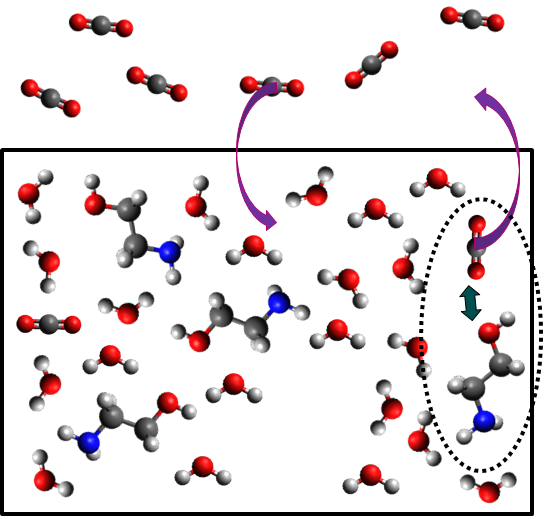A pre-screening model developed by recent TU Delft PhD graduate Sayee Prasaad Balaji has the potential to increase efficiency, and decrease the cost of Carbon Capture and Storage (CCS). CCS is one of the predominant methods of greenhouse gas reduction currently being researched.
A graduate of the TU Delft faculty of Mechanical, Maritime and Materials Engineering (3mE), Sayee Prasaad completed his PhD thesis as part of the Engineering Thermodynamics Group under the supervision of Professor Thijs Vlugt. He explained the importance of CCS in which CO2, which makes up a significant portion of greenhouse gas emissions, is captured, transported and stored underground. His research focused specifically on developing thermodynamic models to pre-screen potential liquid solvents which capture CO2 molecules more efficiently. This is currently an energy intensive and somewhat laborious process, and while scientists are looking for more efficient solvents, this in itself is not very efficient.
To test whether a solvent is effective at carbon capture, it has to be synthesized in a lab and undergo a series of experiments to measure its effectiveness, according to Prasaad it can take up to a year to obtain results. Molecular simulations, on the other hand, are more efficient in pre-screening these solvents to select the most promising ones. These molecular simulations are modelled using statistical thermodynamics that researchers can obtain macroscopic properties from microscopic simulations in a computer programme. Through this they can determine which solvents are effective at carbon capture far more quickly than through lab experiments.
In addition to being more efficient than doing these tests in a lab, this pre-screening model negates the need to synthesize and buy chemicals and expensive lab equipment, making it a cheaper option. Prasaad’s research was funded by CATO-2, a Dutch CCS R&D program. He summed his paper up as an attempt to “develop advanced molecular methods to potentially screen the solvents in an attempt to select promising ones which are less toxic, corrosive and more efficient in capturing the CO2.” He added that the molecular model he has developed is flexible; it can be used, for example, in the capture of gaseous impurities like hydrogen sulphide. Prasaad is currently working for Shell in Amsterdam.
This research could have a long term effect on reducing greenhouse gas emissions. Prasaad explained the importance of this efficient pre-screening model given that the International Energy Agency stated CCS will perform one sixth of the CO2 reductions required by 2050. Making CCS more efficient will not only make it more effective at capture, but in the long term keep down the price of our power. This research is particularly timely, given that the upcoming Paris Climate Change Conference will be held by the United Nations from 30 November until 11 December this year.
Name: Sayee Prasaad
Thesis: Absorption of Greenhouse Gasses; A Molecular Approach
PhD Supervisor: Dr. Thijs Vlugt (Faculty Mechanical, Maritime and Materials Engineering)
Defence date: November 23, 2015



Comments are closed.